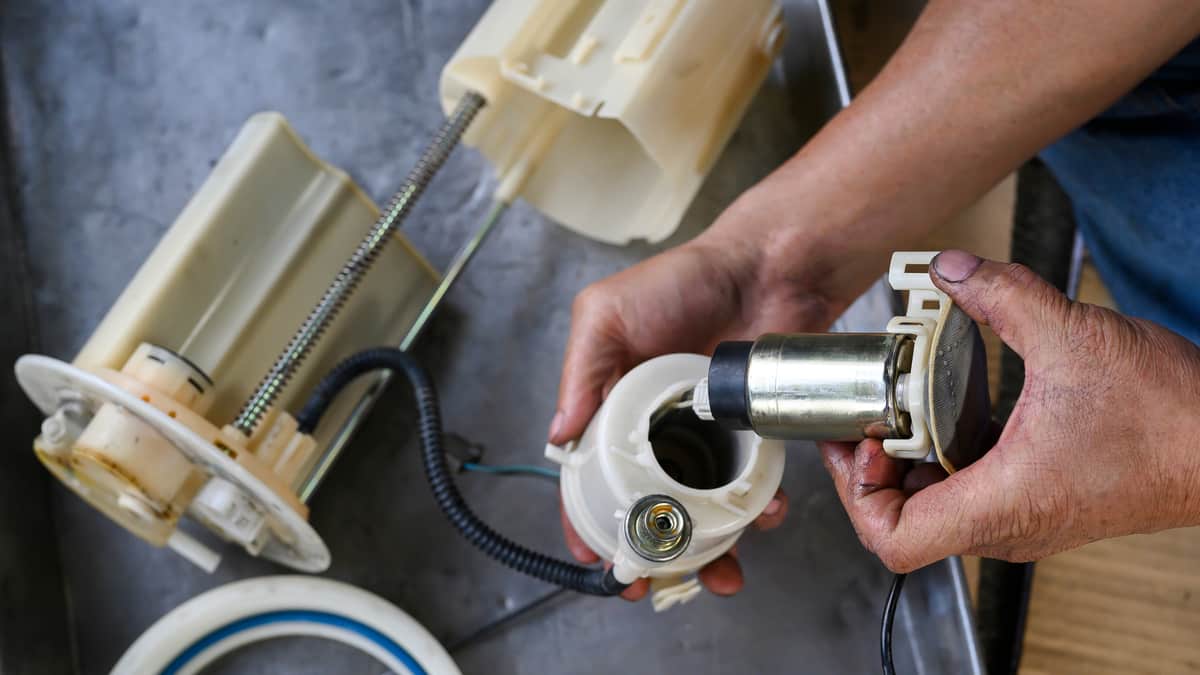Last updated on December 29th, 2022 at 09:59 pm
Fuel pumps are an essential component of a vehicle’s fuel system, as they are responsible for delivering fuel from the tank to the engine. When the fuel pump fails or experiences problems, it can cause a range of issues with a vehicle’s performance and operation. In this article, we will explore some of the common causes of fuel pump problem and discuss how to diagnose and resolve them
By understanding the root cause of a fuel pump problem, drivers can take the necessary steps to fix the issue and get their vehicle back on the road.
If you want to learn how to fix fuel pump problem without replacing it check this READ MORE
10 Causes of Fuel Pump Problems
1- Bad Fuel
One potential cause of fuel pump problems is bad fuel. This can occur when the fuel has gone bad or has become contaminated with water or debris. Bad fuel can cause the fuel pump to malfunction or become damaged, leading to a range of issues with a vehicle’s performance
To diagnose and fix this problem, it is important to check the quality of the fuel being used and to ensure that the fuel tank is free of any debris or contaminants. If the fuel pump has already been damaged by bad fuel, it may need to be replaced.
To prevent this issue from occurring in the future, it is important to use high-quality fuel and to regularly check the fuel tank for any signs of contamination or wear.
2- Clogged or Restricted Fuel Filter
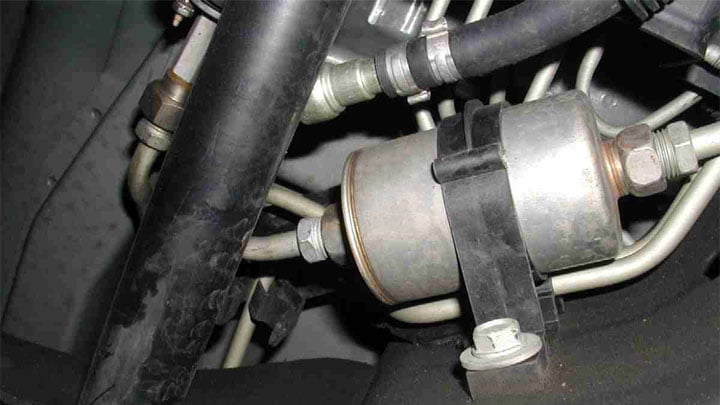
A clogged or restricted fuel filter can also cause fuel pump problems. The fuel filter is responsible for removing any impurities or contaminants from the fuel before it reaches the fuel pump.
When the filter becomes clogged or restricted, it can restrict the flow of fuel to the pump, causing it to work harder and potentially leading to failure.
To diagnose and fix this problem, it is important to check the fuel filter and replace it if it is dirty or damaged. It is also a good idea to check the fuel lines and fuel tank for any signs of damage or obstruction. If the fuel pump has already been damaged by a clogged fuel filter, it may need to be replaced.
To prevent this issue from occurring in the future, it is important to regularly check and maintain the fuel filter and to use high-quality fuel to reduce the risk of contamination.
3- Faulty Fuel Pump Relay
A faulty fuel pump relay can also cause fuel pump problems. The fuel pump relay is an electrical component that helps to control the fuel pump and ensure that it is operating properly.
When the fuel pump relay fails or experiences problems, it can cause the fuel pump to malfunction or stop working altogether.
To diagnose and fix this problem, it is important to check the fuel pump relay and replace it if it is faulty. It is also a good idea to check the electrical connections to the fuel pump and ensure that they are secure and in good condition. If the fuel pump has already been damaged by a faulty fuel pump relay, it may need to be replaced.
To prevent this issue from occurring in the future, it is important to regularly check and maintain the fuel pump relay and to address any electrical issues as soon as they are noticed.
4- Electrical Issues
Electrical issues can also cause fuel pump problems. The fuel pump is an electrical component, and it requires a stable power supply to function properly. If the fuel pump is not receiving enough power, it can cause it to malfunction or stop working altogether.
To diagnose and fix this problem, it is important to check the electrical system and identify the root cause of the issue. This may involve checking the wiring, the fuel pump relay, and other electrical components. If the fuel pump has already been damaged by electrical issues, it may need to be replaced.
To prevent this issue from occurring in the future, it is important to regularly check and maintain the electrical system and to address any issues as soon as they are noticed.
5- Poor Ground Connection
A poor ground connection can also cause fuel pump problems. The ground connection is an electrical path that allows the fuel pump to communicate with the vehicle’s electrical system. If the ground connection is not functioning properly, it can cause the fuel pump to malfunction or stop working altogether.
To diagnose and fix this problem, it is important to check the ground connection and ensure that it is secure and in good condition. This may involve cleaning the ground connection and ensuring that it is properly tightened
To prevent this issue from occurring in the future, it is important to regularly check and maintain the ground connection and to address any issues as soon as they are noticed.
6- Incorrect Fuel Pressure Regulator Setting
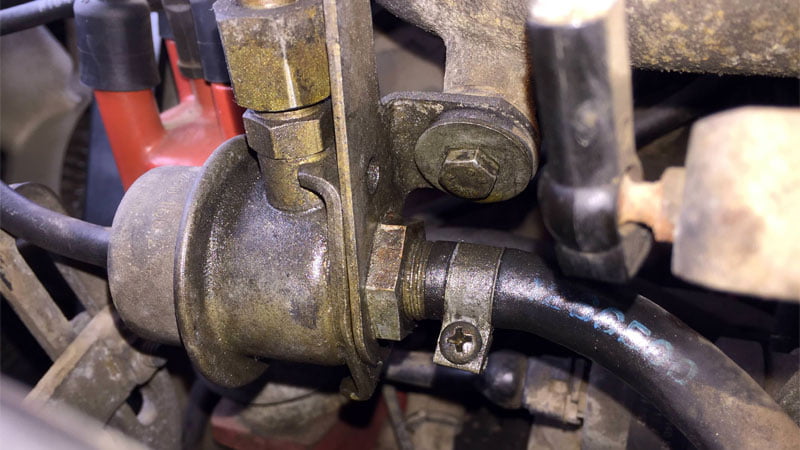
An incorrect fuel pressure regulator setting can also cause fuel pump problems. The fuel pressure regulator is a component that helps to control the fuel pressure in the fuel system.
When the fuel pressure regulator is not set to the correct setting, it can cause the fuel pump to work harder than it should, potentially leading to failure.
To diagnose and fix this problem, it is important to check the fuel pressure regulator and ensure that it is set to the correct setting. This may involve adjusting the regulator or replacing it if it is faulty.
To prevent this issue from occurring in the future, it is important to regularly check and maintain the fuel pressure regulator and to ensure that it is set to the correct setting.
7- Faulty O2 Sensor
A faulty oxygen (O2) sensor can also cause fuel pump problems. The O2 sensor is a component that helps to monitor the oxygen levels in the exhaust system.
When the O2 sensor is faulty, it can cause the fuel system to malfunction, potentially leading to fuel pump problems.
To diagnose and fix this problem, it is important to check the O2 sensor and replace it if it is faulty.
To prevent this issue from occurring in the future, it is important to regularly check and maintain the O2 sensor and to address any issues as soon as they are noticed.
8- Dirty Mass Air Flow (MAF) Sensor
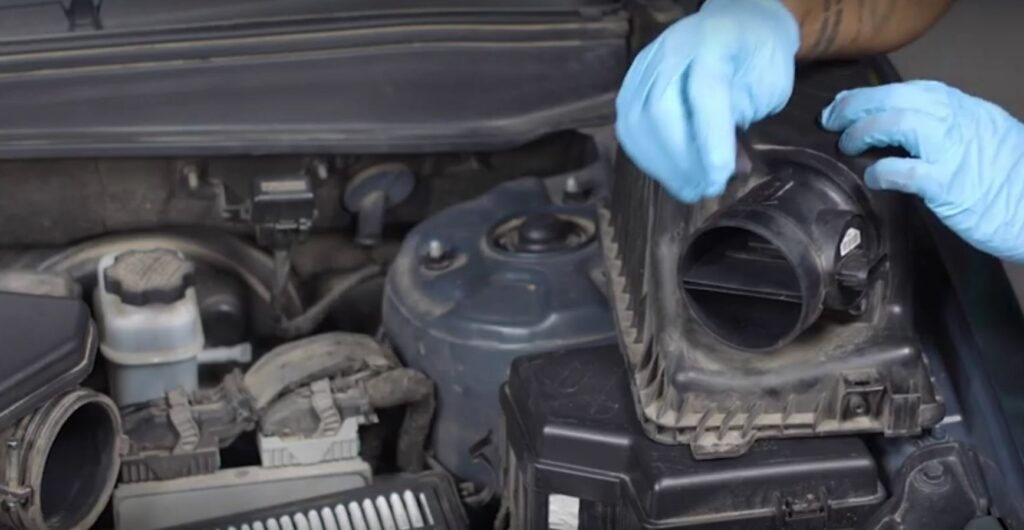
A dirty mass air flow (MAF) sensor can also cause fuel pump problems. The MAF sensor is a component that helps to measure the amount of air flowing into the engine.
If the MAF sensor is dirty, it will give the ECU inaccurate information about the amount of air flowing into the engine. This will cause the ECU to inject too much or too little fuel into the engine, which can lead to engine performance problems and fuel economy issues.
To diagnose and fix this problem, it is important to check the MAF sensor and clean it if it is dirty.
To prevent this issue from occurring in the future, it is important to regularly check and maintain the MAF sensor and to clean it if it becomes dirt
9- Exhaust Gas Recirculation (EGR) Valve Sticking
A sticking exhaust gas recirculation (EGR) valve can also cause fuel pump problems. The EGR valve is a component that helps to reduce emissions by recirculating a portion of the exhaust gas back into the engine
This happens when the EGR valve becomes stuck in the open position, which allows exhaust gases to enter the intake manifold. This can cause a number of issues, including reduced fuel economy, increased emissions, and engine damage.
If you suspect that your EGR valve is sticking, it’s important to have it checked out by a qualified mechanic as soon as possible. Ignoring the problem can lead to serious engine damage, so it’s best to nip it in the bud before it gets out of hand.
10-Sputtering or Stalling Engine
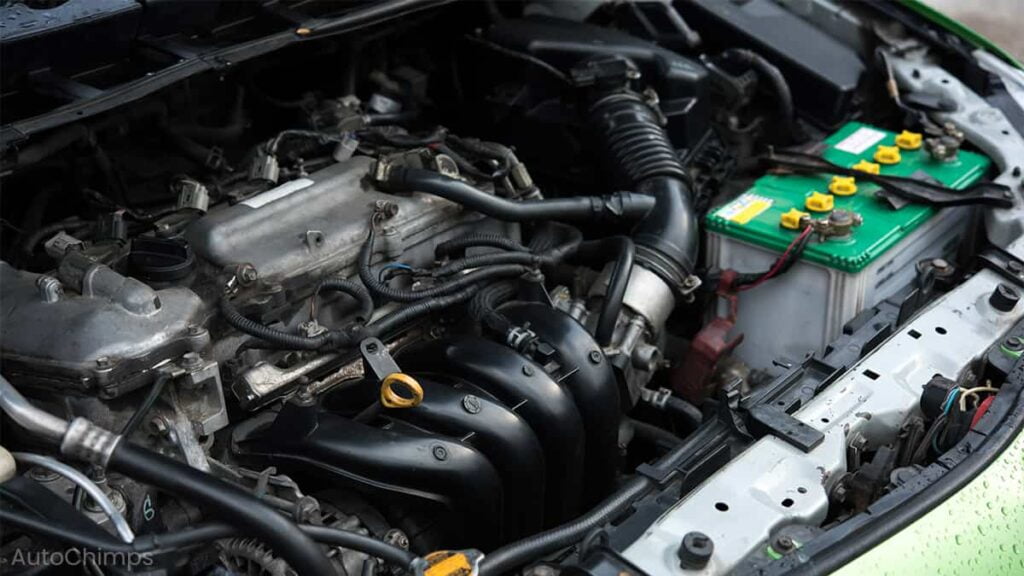
A stalling or sputtering engine can be caused by a fuel pump problem.
Sputtering or stalling engine can also be caused by fuel pump problems. When the fuel pump is not functioning properly, it can cause the engine to sputter or stall due to a lack of fuel.
To diagnose and fix this problem, it is important to check the fuel pump and address any issues that may be causing it to malfunction. This may involve replacing the fuel pump or addressing other issues such as a faulty fuel filter or a clogged fuel line.
You can avoid this problem by regularly maintaining your fuel system and keeping an eye on the condition of your fuel filter, fuel lines, and fuel pump. READ MORE
FAQS
Q: Can fuel pump fail suddenly?
A: Yes, a fuel pump can fail suddenly. If your car starts making strange noises or starts to lose power, it could be a sign that the fuel pump is failing. If you think your fuel pump is failing, you should take your car to a mechanic and have it checked out.
Q: Can a fuel pump quit without warning?
A: A fuel pump quitting without warning is a possibility, though it is not common. If you notice your vehicle’s engine suddenly losing power or stalling, it could be a sign that the fuel pump has failed.
Q: Can a fuel pump be weak but still work?
A: Yes, it is possible for a fuel pump to be weak but still work. The term “weak” can refer to various aspects of the fuel pump’s performance, such as the amount of pressure it is able to generate, the volume of fuel it is able to deliver, or the efficiency with which it operates.
A weak fuel pump may still be able to deliver enough fuel to support the engine’s needs, but it may struggle to do so and may experience problems over time
CONCLUSION
After long research, we are certain that we are able to give you the best information on this topic. We hope you enjoyed reading our blog, and we are always excited when one of our blog posts is able to provide useful information on a topic like this! If you have any other questions or concerns about the topic of fuel pumps and how to fix them, please contact us anytime at _.
FOLLOW US
